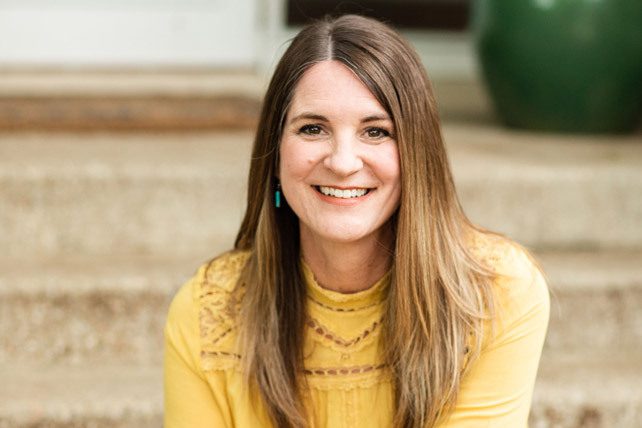There are several misconceptions Christians can have when it comes to our expectations about reading the Bible. Author and Bible teacher Jen Wilkin addressed some of these misunderstandings in a recent interview on the Stetzer ChurchLeaders Podcast, where she also gave suggestions for how church leaders can help congregants engage with the Bible well.
“This, like any other spiritual discipline, is something that we labor for,” said Wilkin. “It’s something that requires effort on our part.”
Jen Wilkin: How Not To Approach the Bible
Jen Wilkin is executive director of Family and Next Gen Ministries at The Village Church in Flower Mound, Texas. She is the author of several books, including, “Ten Words to Live By: Delighting In and Doing What God Commands” and “Women of the Word: How to Study the Bible with Both Our Hearts and Our Minds.”
One of the main misunderstandings people have about reading the Bible is thinking that it should be easy, says Wilkin, a view she attributes in part to our “instant gratification culture.” In fact, Wilkin calls the idea that reading the Bible should be easy “the biggest challenge” to getting people to engage with it. She said:
We know that to be a follower of Christ is to take up our cross and deny ourselves and follow him. We think that applies to things like giving our money and allocating our time in the day. And we don’t think that it will be hard for us to open the Scriptures and draw the necessary wisdom that we need from them.
A related misconception is that we forget loving God involves loving him with all of our minds. Using our minds well is difficult and takes work. For example, said Wilkin, “Meditating on something is, first of all, an act of the intellect, and it’s really mulling something over and giving it a chance to expand on you.” We need to pursue “an expansive way of reading” the Bible, she says, instead of being satisfied with “a surface level understanding” and “a bare minimum way of reading.”
Another wrong idea people have sometimes is they think the quality of their day is determined by whether or not they start it with Bible reading. Said Wilkin, “What we have a lot of times in Christian subculture is the mindset of, ‘If I start my day with my time in the Word, then my day will go well, and if I don’t do that, then my day will go poorly.’” This perspective is part and parcel of the idea that Bible reading should not be too demanding.
Yet another problem Wilkin addresses is that it is easy for people in the pews to rely on “experts” to interpret the Bible for them. She said, “I would say that over the last 30 or 40 years in the church, we have seen develop an expert/amateur divide. The expert stands on a platform and communicates the specialized information to the amateurs who sit in the pews. And not only have we seen this, but we have seen both the expert and the amateur embrace those roles fully. The people who are sitting in the pews think that it is the job of the person on a platform to do the work for them.”

